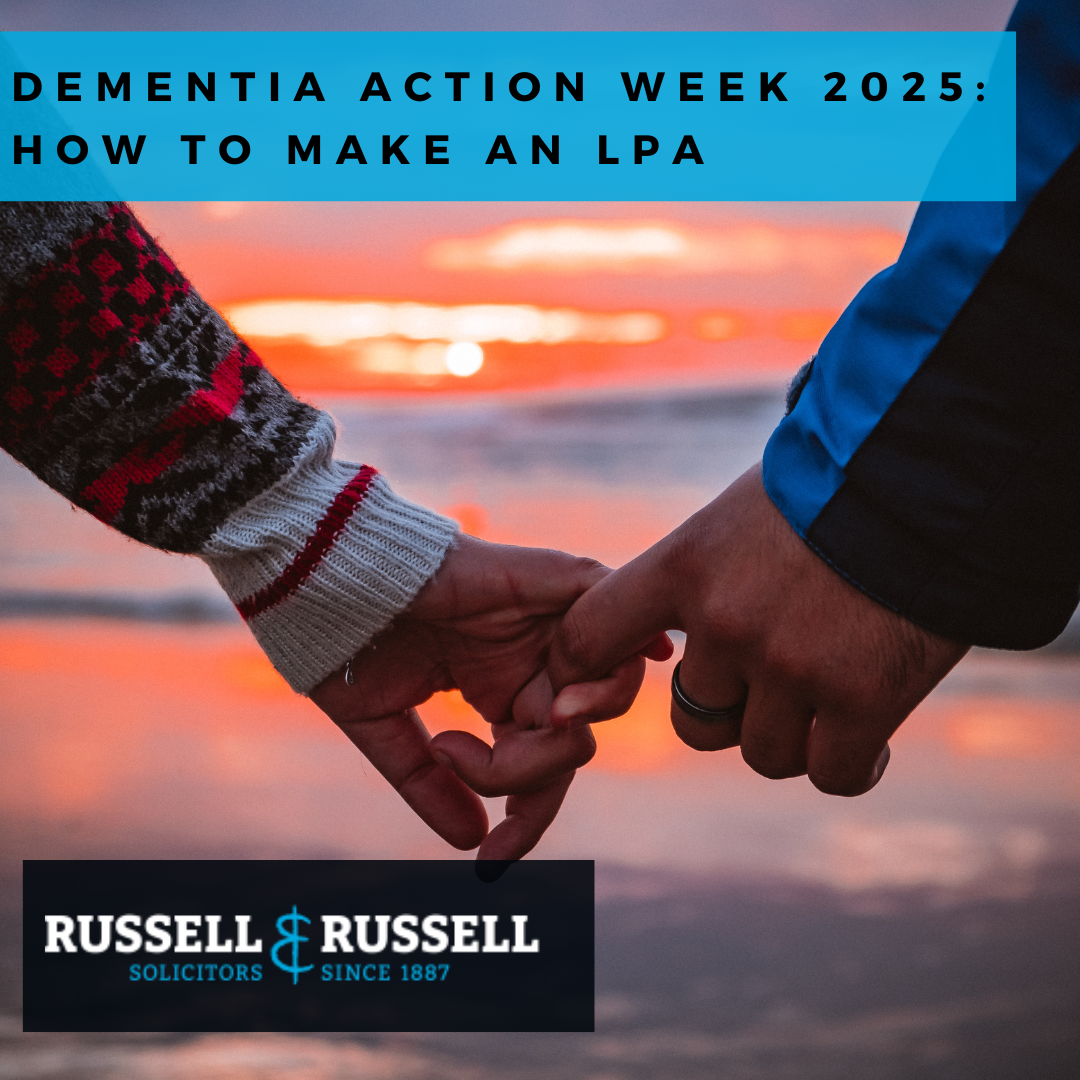19/05/2025

It’s Dementia Action Week in the UK from 19 until 25 May, an annual campaign by the Alzheimer’s Society to raise awareness of dementia.
Dementia mainly affects people over 65, and the likelihood of developing dementia increases significantly with age. One in 14 people aged over 65 has dementia, which rises to one in six for people aged over 80, according to the Alzheimer’s Society.
Dementia is a devastating disease, with a series of symptoms that get progressively worse.
Symptoms of dementia can vary, although the most common include:
- Memory loss.
- Difficulty concentrating, planning, or organising.
- Problems with language and communication.
- Misinterpreting what is seen.
- Confusion.
- Changes in behaviour.
Receiving a dementia diagnosis can prompt fears about the future. However, an early dementia diagnosis is vital to access the care, treatment and support people living with the condition may need.
It also enables people living with dementia can put in place the right legal documents to protect themselves and their families before their condition deteriorates.
Making a Will and a Lasting Power of Attorney (LPA) in good time, and while you still have the testamentary capacity to do so, is crucial to ensure you and your loved ones are protected.
What is an LPA?
An LPA is a document that allows someone (an ‘attorney’) to make decisions for you if you are no longer able to. It gives you more control over your future if you have an accident or suffer from a condition, like dementia, that results in you losing mental capacity.
Most people with dementia will reach a point where they can no longer make decisions for themselves.
Having in place an LPA means you can appoint an attorney you know and trust to make important decisions about your finances and welfare should there come a time when you are unable to, leading to better outcomes and providing valuable peace of mind.
Without an LPA in place, there is no guarantee that the people you want will be able to make the decisions you need. If you lose capacity and there is no LPA, your loved ones will have to apply to the Court of Protection to appoint a ‘deputy’ to act on your behalf.
How do you make an LPA?
There are two different types of LPA:
1. Property and financial affairs. This deals with decisions relating to finances and property, for example, selling your house, paying your bills, accessing your bank accounts and collecting pensions and other benefits.
2. Health and welfare. A health and welfare LPA involves decisions about your medical care, including where you should live and any life-saving or life-sustaining treatment.
You can choose to make one type of LPA, or both. The process is the same for each.
To make an LPA, you must be over 18 and have the mental capacity to understand what you are doing, why you are doing it, appreciate the consequences of your decision, and be able to communicate your choices.
If there are any doubts over a donor’s mental capacity, you may need to arrange for a mental capacity assessment from a qualified professional to avoid potential issues or challenges to its validity later on.
How to Make a Lasting Power of Attorney:
There are three main stages to making an LPA:
1. Seek legal advice. While it is possible to set up an LPA yourself, the forms can be complicated, and it is advisable to ask a solicitor to help. A specialist solicitor with experience in LPAs will be able to ensure the forms are completed correctly and reduce the likelihood of any errors or delays.
For advice on LPAs, please contact Russell & Russell on 0800 103 2600 or make an enquiry online.
2. Complete the forms. LPA forms are long and complex. You need to provide various information, including the name(s) of who you are authorising to act as your attorney(s), details of what decisions you give them the authority to make, and the names of any people you would like to be notified when the LPA is registered.
The forms must also be witnessed and signed.
3. Register LPA with the OPG. Once you have completed the forms, you need to register them with the Office of the Public Guardian (OPG). This usually takes between eight and ten weeks although can take longer if there are mistakes with the application.
The OPG charges a registration fee of £82 per LPA.
LPA Solicitors Near Me
A Lasting Power of Attorney is a valuable legal document that should be considered as important as a Will.
It is never too early to make one, and every adult over the age of 18 should have one. Putting it off until a later date can cause untold difficulties for you and your family.
Consulting a solicitor is the best way to ensure a Lasting Power of Attorney is properly set up and registered.
At Russell & Russell Solicitors, our specialist private client team can help complete the necessary documentation and register LPAs with the OPG.
For more information on how we can help you with your Lasting Power of Attorney or any other Wills and Probate enquiries, click here, call us on 0800 103 2600 or make an online enquiry.
Please note that this article is meant as general guidance and not intended as legal or professional advice. Updates to the law may have changed since this article was published.

